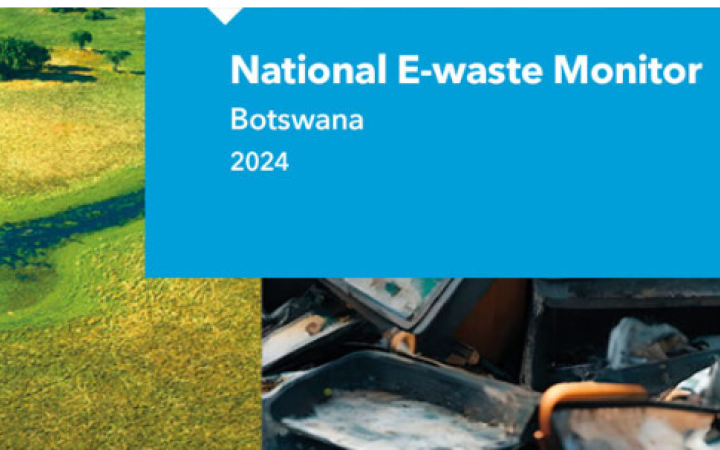
Kate O’Brien, Director of the Department of Immunization, Vaccines and Biologicals at WHO
In a pivotal meeting last month, the Strategic Advisory Group of Experts on Immunization (SAGE) came together to examine comprehensive global and regional reports on immunization programme and outbreak status on immunization programme and outbreak status, thoroughly explore the progress on Immunization Agenda 2030 (IA 2030) goals , and offer vital recommendations regarding polio, hepatitis E, and Mpox vaccines.
The meeting also celebrated the 50th anniversary of the Expanded Programme on Immunization (EPI), recognizing its monumental achievements since its founding in 1974, while charting a course for its future endeavors. Over the past five decades, immunization has emerged as a cornerstone of primary healthcare, community development, and global health, by significantly impacting child survival rates through largescale prevention of vaccine-preventable disease and mortality. EPI has not only created the foundations of primary healthcare in many countries but has also played a vital role in promoting equity in healthcare access.
The meeting highlighted the remarkable advancements in vaccine technologies and distribution mechanisms, which have led to the development and deployment of numerous life-saving vaccines.
However, amidst the celebration of past accomplishments, SAGE also acknowledged recent setbacks, particularly in meeting the goals outlined in the IA 2030. While preliminary data from 2023 show increasing signs of recovery towards pre-pandemic vaccination levels, there remains much work to be done to realign efforts with the Agenda’s objectives. Looking ahead, SAGE emphasized the importance of country ownership, community-centered approaches, partnership building, and data-driven decision-making without which the goals of IA2030 will not be achieved.
The meeting also addressed the implementation progress of the Big Catch-up initiative, stressing the necessity of political commitment, community involvement, and healthcare workforce capacity building. Monitoring the initiative’s progress through robust data collection and analysis was deemed essential for informing future actions and ensuring accountability. Recognizing the challenges in data collection and surveillance systems, SAGE emphasized the need for long-term investments in strengthening immunization data capacity and infrastructure.
As the world continues to navigate health challenges and polycrises, SAGE reaffirmed its commitment to advancing immunization efforts worldwide, guided by evidence-based strategies and a collective resolve to safeguard public health.
EYE Strategy Annual Partners’ Meeting 2024
Last month also marked a pivotal moment in the ongoing battle against yellow fever, as the EYE Strategy Annual Partners’ Meeting 2024 gathered in the dynamic city of Addis Ababa, Ethiopia.
The convening served as a platform to commend and extend support to Ethiopia for its recent decision to incorporate the yellow fever vaccine into its routine immunization schedule nationwide, a strategic move aimed at bolstering the country’s defenses against this potentially devastating disease. Additionally, the gathering aimed to strategize and mobilize resources for the implementation of preventive mass vaccination campaigns, crucial steps in curbing the spread of yellow fever.
Amidst discussions and exchanges of insights, the meeting celebrated a monumental achievement: the protection of more than 365 million individuals across Africa against yellow fever since the inception of the EYE Strategy. Of these, over 264 million people have been safeguarded through extensive vaccination campaigns, underscoring the efficacy and impact of concerted efforts in disease prevention and control.
However, the convening also shed light on the sobering reality of the resurgence of yellow fever outbreaks in regions that have historically benefited from preventive mass vaccination campaigns. Comprehensive analyses were presented, prompting a collective commitment among partners and stakeholders to implement catch-up interventions and strengthen routine immunization programs for yellow fever vaccination and beyond.
Furthermore, partners and key stakeholders reflected on the EYE Strategy’s trajectory, recognizing that it has entered an accelerated phase following an independent mid-term evaluation. This phase necessitates a renewed and intensified commitment from all involved parties to ramp up activities related to yellow fever prevention and control until the Strategy’s formal conclusion in 2026.
The EYE Strategy Annual Partners’ Meeting 2024 underscored the importance of proactive measures, solidarity among nations, and sustained investment in public health initiatives to safeguard communities worldwide from the life-threatening consequences of infectious diseases.
Measles and Rubella Partnership ignites action
The Measles and Rubella Partnership (M&RP) also held a series of leadership and partnership meetings in Washington DC in March, with a focus on achieving a measles and rubella-free world. Over 150 global participants gathered for the first time since 2019, to ignite discussions on breaking through bottlenecks, broaden horizons, and tackle challenges head-on in pursuit of the strategy goals for measles and rubella elimination.
The meeting concluded with a call-to-action, urging increased ownership and collaboration, proactive efforts to close immunity gaps, adoption of innovative approaches, amplified investments in cutting-edge technologies, and a commitment to sustaining and accelerating our collective efforts towards achieving our measles and rubella eradication goals.
With determination, the M&RP community marches forward, fueled by the belief that together, we can build a world free from the threat of measles and rubella.
For the first time, cervical cancer’s end is in sight
March brought monumental progress in the fight against cervical cancer, signaling that the end of this deadly disease is finally within sight. The first-ever “Global cervical cancer elimination forum: advancing the call to action” held from March 5th to 7th, in Cartagena de Indias, Colombia, served as a game-changing platform. Governments, donors, multilateral institutions, and partners converged to champion the global elimination strategy and address the stark inequities denying women and girls access to life-saving interventions.
Despite having all the necessary tools to prevent and eliminate cervical cancer, the disease continues to wreak havoc on hundreds of thousands of women, families, and communities worldwide. Access to vaccines, screening, and treatment remains woefully inadequate in the most vulnerable regions. Vaccines, crucial in preventing human papillomavirus (HPV) infections and subsequently cervical cancer, are not reaching those who need them the most.
However, hope soared as unprecedented commitments were announced at this landmark forum, totaling nearly US$600 million in new funding to eradicate cervical cancer. These commitments, aimed at expanding vaccine coverage and strengthening screening and treatment programs, could potentially mark the first-ever elimination of a cancer. This momentum builds upon the promise made in 2020 when 194 countries adopted WHO’s global strategy to eliminate cervical cancer.
With bold commitments and decisive action, the focus now shifts to accelerating progress and supporting countries in their journey towards equitable access to care. Together with partners, efforts are underway to pave the way for a future where all women, regardless of socio-economic status or geographic location, have access to the care they deserve.
Combatting malaria: a call to action in Africa’s high-burden countries
March also marked an historic moment as African Ministers united in the fight against malaria. The Malaria Ministerial Conference convened in Yaoundé, Cameroon, drawing Ministers of Health and senior government officials from Africa’s 11 high burden to high impact countries.
Despite progress, malaria continues to claim lives and devastate families, with the African region bearing the brunt of the burden, representing 94% of global malaria cases and 95% of global deaths.
The conference culminated in the signing of a declaration by ministers committing to stronger leadership and increased domestic funding for malaria control programs. The pledge includes further investment in data technology, application of latest technical guidance, and enhancement of efforts at national and sub-national levels.
To reignite progress against malaria, greater domestic and international funding, science-driven responses, research, and innovation are imperative. With political leadership, country ownership, and collaborative partnerships, the story of malaria in Africa can be rewritten for the betterment of families and communities continent-wide
April’s global health milestones: promoting immunization efforts
April is set to host two significant events aimed at advancing global health initiatives and promoting immunization efforts.
Firstly, WHO is gearing up for its inaugural high-level meeting to combat meningitis. Scheduled to take place in Paris on April 26, this meeting aims to mobilize commitments towards achieving the objectives outlined in the WHO Global Road Map to defeat meningitis by 2030. With a focus on galvanizing support and resources, the meeting signals a crucial step towards eliminating meningitis epidemics and caring for those who suffer the long-term consequences of meningitis.
Additionally, April 24-30 will see the celebration of World Immunization Week, a rallying call to ramp up investments in immunization programs, and in so doing, ensuring the protection of future generations against deadly infections. The central theme this year will be the 50th anniversary of the EPI, highlighting the commitment of the global community to prioritize public health and strengthen immunization efforts, underscoring the importance of collective action in achieving health equity and resilience. The theme this year will be “Humanly Possible” and we welcome all of you to plan for how you will mark this week and contribute to the social movement of immunization. Please visit the World Immunization Week 2024 where all the social media assets and more information on activities during the week will be available by mid-April. Take part, join in, and add your voice.
By building on the foundation of past successes, we can assure that vaccines continue to save ever more lives each year. Through sustained investment, collaboration, and a shared commitment to vaccines and immunization programmes, we can harness the full potential of these life-saving products to protect individuals, communities, and future generations from preventable diseases.








